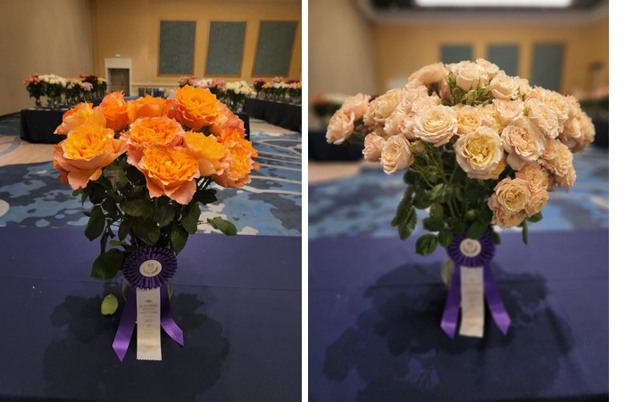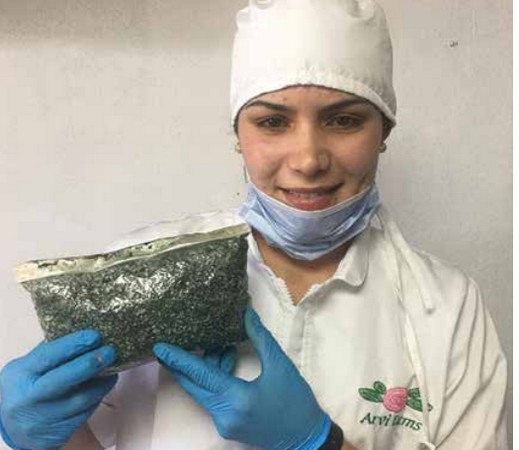During the SAF Outstanding Varieties Competition 2022, two of the top three 'Best in Class' roses were grown by Groflowers, a Colombian company. And they are particularly proud of winning these awards as they are, as far as they know, the only rose grower in the Antioquia region of Colombia, growing their roses at an altitude of 2400 meters. But how did it all start, and how did they grow their roses? Jaime Ruiz, president of the company, explains it in this article.
"Originally, this was a place where hydrangeas and pompoms grew beautifully, but not roses. I decided to take the challenge after my company Arvi Farms became Proflora champion in 2019. I decided to include a garden rose and rose production. I worked on the new project during the pandemic, and I started production on January 2022. I decided to take my flowers to compete in the Outstanding Varieties Competition of the Society of American Florists in Orlando Florida 2022," he says. "One thing that was interesting is that all the rose awards, both spray roses, and garden roses, were won by Colombian companies, whereas other countries were considered the best this proves that sometimes altitude might not be the only factor for quality roses," he adds.

Free Spirit Rose and Sahara Sensation Spray.
Grow with an eco-friendly approach
Arvi Farms is a small farm that always aims to grow high-quality roses with an eco-friendly approach where they use their own beneficial fungus and bacteria to combat botrytis.
"In our own facility, the company's beneficial fungus and bacteria are cultured by spreading a small portion of it on various agar media in a process called inoculation. The media are then incubated in a warm, moist environment and examined regularly to detect the growth of any organisms, then beneficial fungus and bacteria are exponentiated for its use on the fields."

"Beneficial fungi and bacteria enhance our soils and help plants get nutrients that are hard to absorb. That's because beneficial fungus seeks out phosphate and other nutrients and brings them to the plants. Beneficial fungus and bacteria also allow for nutrient exchange between plants and protect plants from fungal diseases and other root-feeding microorganisms," the company shares.

It takes time to reproduce beneficial fungi and bacteria to levels that are helpful. After one year of the first application, the farm started to see concise results in the reduction of botrytis. Biological fungicides supplement — rather than harm — biological life in the soil. In addition, biological pesticides have helped reduce the cost of pesticides at the farm. "Biological pesticides are just one part of our farming approach at Arvi Farms. Other sustainable practices at our farm include rainwater collection and use, zero-waste water discharge to soils, composting, and more. Resulting in the production of high-quality roses.
For more information
Jaime Ruiz
Email: [email protected]










